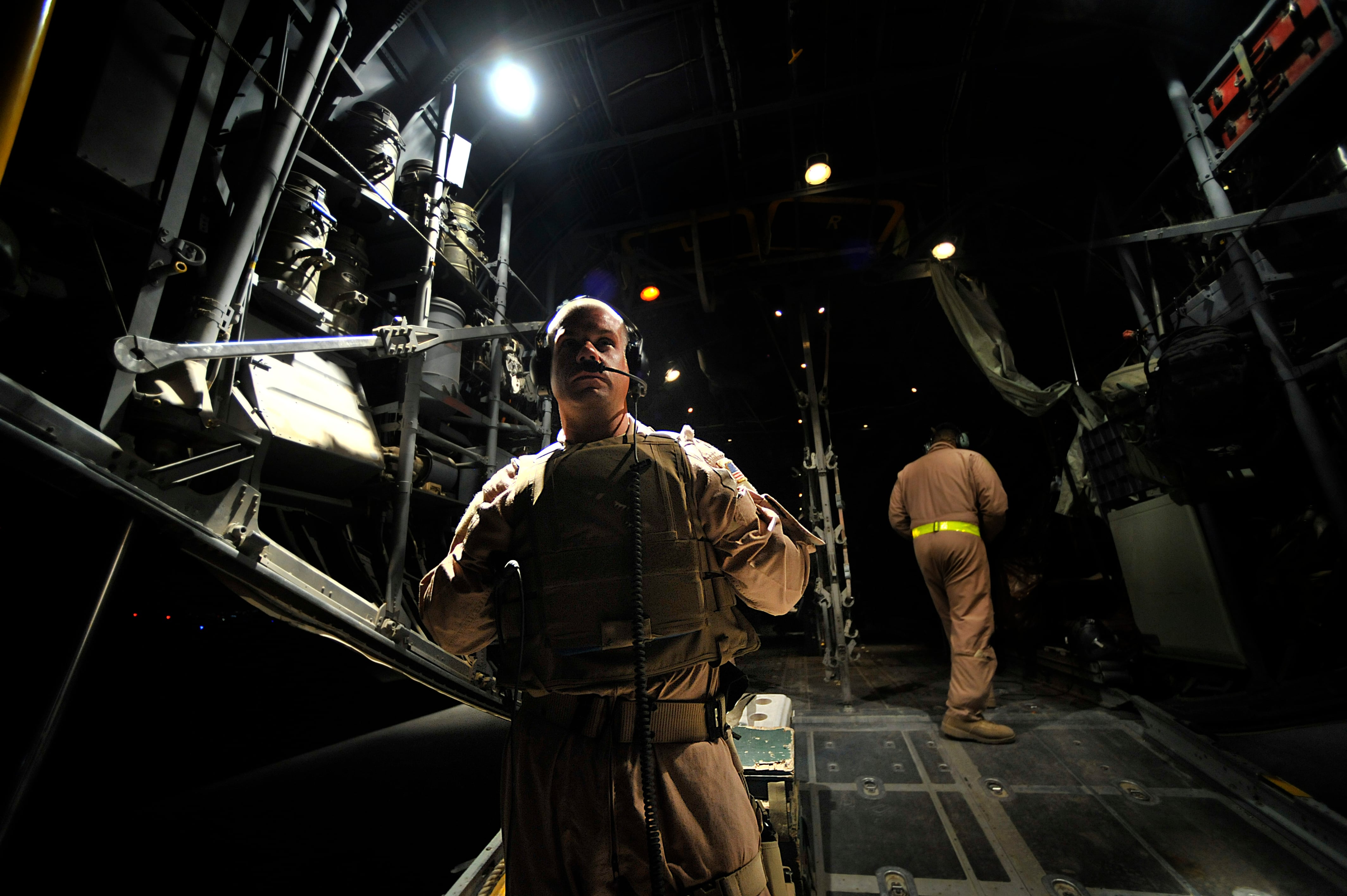Lt. Col. Brandon Bailey said he retired from the Air Force after nearly 20 years of distinguished service to his country, with a combat tour in Afghanistan under his belt and a Purple Heart and Bronze Star pinned to his chest.
Bailey said he spent years as a search-and-rescue and battlefield medicine specialist. He said combat wounds caused a total and permanent disability that has stopped him from working, following his medical discharge from the Air Force.
But it isn’t true.
For the past two years, Bailey has been the subject of a federal investigation into a complex web of financial and bankruptcy fraud he spun over the course of a decade.
The former major was expelled from the Air Force, following a 2010 court-martial conviction for illicit drug use and theft while stationed in Iraq. The decision aimed to strip him of his pay, benefits and access to Veterans Affairs resources.
Then, unbeknownst to the Air Force, the service continued sending him paychecks — for seven years. So Bailey cashed in.
All told, he stole about $1.5 million — including around $820,000 in pay and benefits from the Air Force — from an array of federal agencies and financial institutions while getting paid for consulting and teaching jobs under false pretenses, federal prosecutors said.
He hustled the bankruptcy system and likely laundered money through his mother’s bank account, according to court documents.
“He never medically retired from the Air Force. At no point during his military service did Brandon Leross Bailey receive the Purple Heart medal,” federal prosecutors wrote in a 2020 indictment.
Under a plea deal the DOJ struck with Bailey and his attorneys, the government plans to drop all but two of the 13 counts of misconduct against him. He pleaded guilty in June 2021 to stealing money from the Air Force and to bankruptcy fraud.
His sentencing hearing is scheduled for Wednesday at U.S. District Court in the Southern District of Alabama in Mobile.
Federal lawyers recommend the court sentence Bailey to three years of supervised release, to repay between $1.5 million and $3.5 million to those he defrauded, and to turn over his four-bedroom, three-bath house in Maine, his Ford F-150 pickup truck, several properties in Alabama and the contents of 11 bank and investment accounts.
“Bailey is a serial fraudster for whom a low-end guidelines sentence is reasonable,” the Justice Department wrote in a Jan. 11 memo.
James Davis, a law enforcement coordinator with the U.S. Attorney’s Office in Mobile, told Air Force Times March 17 the government is not seeking jail time because Bailey already faces enormous losses.
A federal judge will make the final call on whether Bailey will spend time in jail, how much money he must return and other terms of his punishment at a Wednesday sentence hearing. The maximum penalty he could receive for the two counts totals 15 years in prison followed by six years of supervised release, a $500,000 fine, another special fee of $200 and restitution of stolen funds.
He is awaiting sentencing in Conecuh County Jail in southern Alabama, according to his lawyer, Brian Lockwood. Lockwood declined to comment on Bailey’s behalf March 17.

Who is Brandon Bailey?
According to Bailey’s Air Force Personnel Center record, obtained by Air Force Times March 18, he joined the Reserve in 2001 and was placed on active duty in 2004. He became a flight crew nurse, rising to the rank of major.
The major deployed to Joint Base Balad in Iraq in August 2008, where he worked as the 332nd Expeditionary Operations Support Squadron’s medical crew director. He led a five-person crew of medical technicians and nurses on medical transport missions, treating ailments from contracted diseases to battle wounds.
In that job, Bailey was responsible for keeping track of a box of supplies loaned from the pharmacy for medical evacuations. He was also in charge of accounting for any medications used during those missions.
Then he got weird.
Bailey’s unnamed roommate in mid-October 2008 noticed him acting strangely and talking to nonexistent people, according to Air Force court documents.
“He also witnessed [Bailey] draw a controlled substance into a syringe and inject himself in the arm,” the service said. “A subsequent search of the appellant’s locker and nightstand revealed an [aeromedical evacuation box], multiple empty vials of various narcotics, syringes and needles stashed in the appellant’s locker and nightstand.”
RELATED
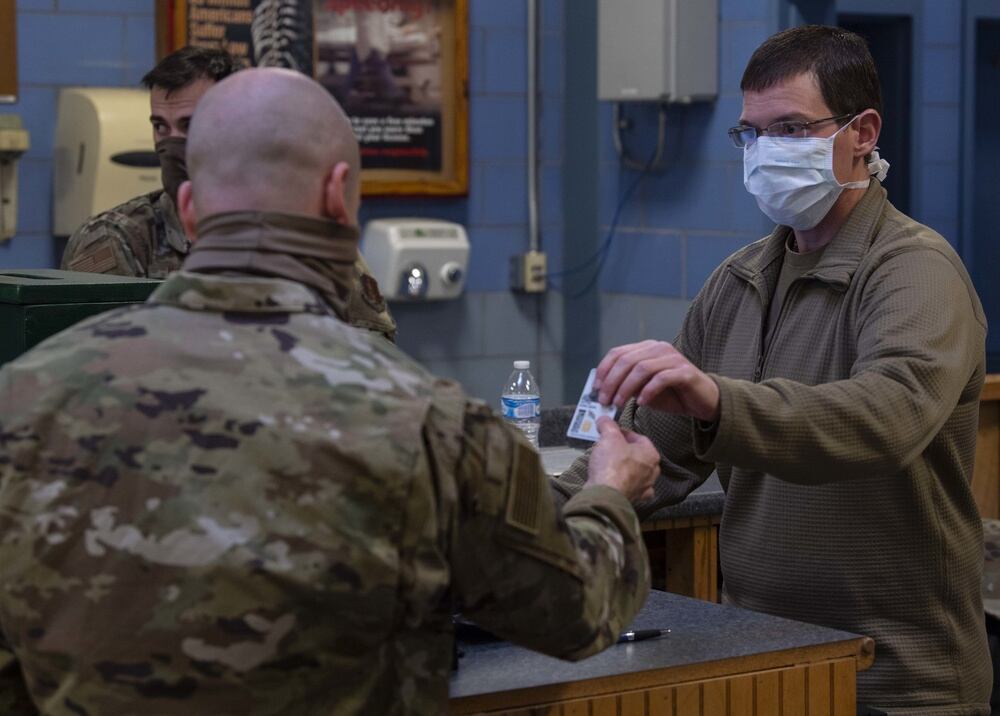
Bailey’s urine tested positive for multiple controlled substances. Ahead of his court-martial, he admitted to wrongfully using meperidine, morphine, oxycodone and lorazepam between Sept. 20 and Oct. 20, 2008, and possessing meperidine, morphine sulphate, oxycodone and acetaminophen, diazepam and phenobarbital.
He also stole promethazine and meperidine from Sept. 3 to the day he was caught on Oct. 20, 2008, the Air Force said.
Bailey claimed his actions were “fairly attributable” to injuries suffered while deployed, but the court said he presented no supporting evidence and a mental review concluded he was sane.
He was convicted of 13 counts of wrongful drug use, possession and appropriation, as well as theft, in a general court-martial in July 2010. The military judge at Shaw Air Force Base, South Carolina, sentenced him to dismissal from the Air Force and three months of confinement. He appealed the sentence and was placed on leave while the military justice system deliberated.
Ahead of a final ruling, Bailey acknowledged his Air Force career was over.
“I am doing well. Out of the Air Force,” he wrote in a public Facebook comment on Oct. 25, 2010. “Trying to figure out what to do [with] my life.”
RELATED
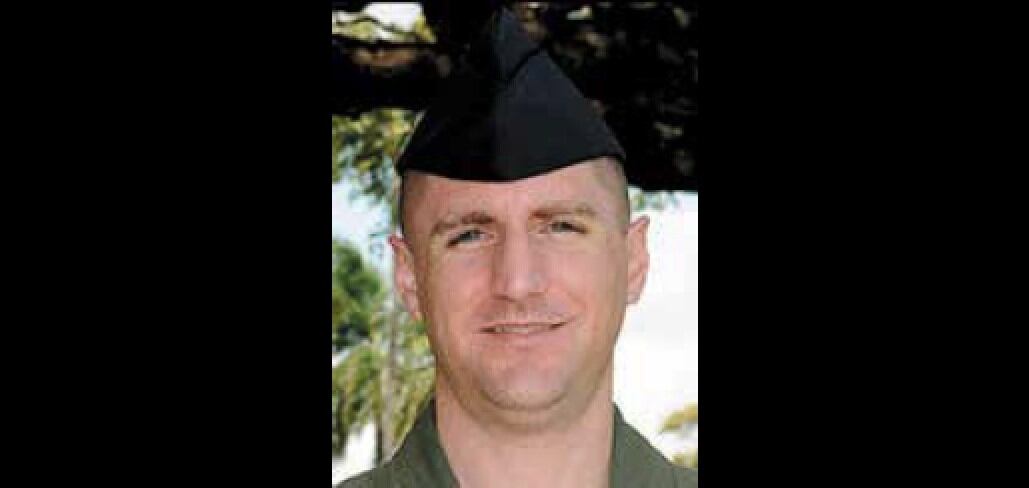
Nearly three years later, the Air Force Court of Criminal Appeals denied his complaint that the decision to boot him from the service was too harsh.
Bailey’s “willful conduct failed to live up to the high standard of accountability expected of commissioned officers,” court clerk Steven Lucas wrote in a March 2013 decision.
“Although the appellant’s previous contributions during his career are excellent, he engaged in a course of conduct that included stealing drugs entrusted to him for the use of his comrades wounded in combat and causing himself to act in a bizarre and inappropriate manner,” Lucas said.
The Air Force formally separated Bailey as a major on Oct. 1, 2013, in the officer equivalent of a dishonorable discharge.
Bailey “falsely portrayed himself as a retired Air Force nurse, a combat rescue officer, a veteran of a combat tour in Afghanistan and a Purple Heart medal recipient, among other misrepresentations,” Justice Department lawyers wrote in the December 2020 indictment.
Air Force records show he received 20 military awards and decorations during his service. They include largely typical awards honoring time in service and participation in overseas operations like the Iraq War, or ribbons that are automatically handed out in certain situations, such as at the end of basic military training.
“We have no record of this officer being awarded the Bronze Star or Purple Heart. Those decorations are not listed in his record and they are not listed on his DD214″ separation paperwork, Personnel Center spokesperson Mike Dickerson said.
RELATED
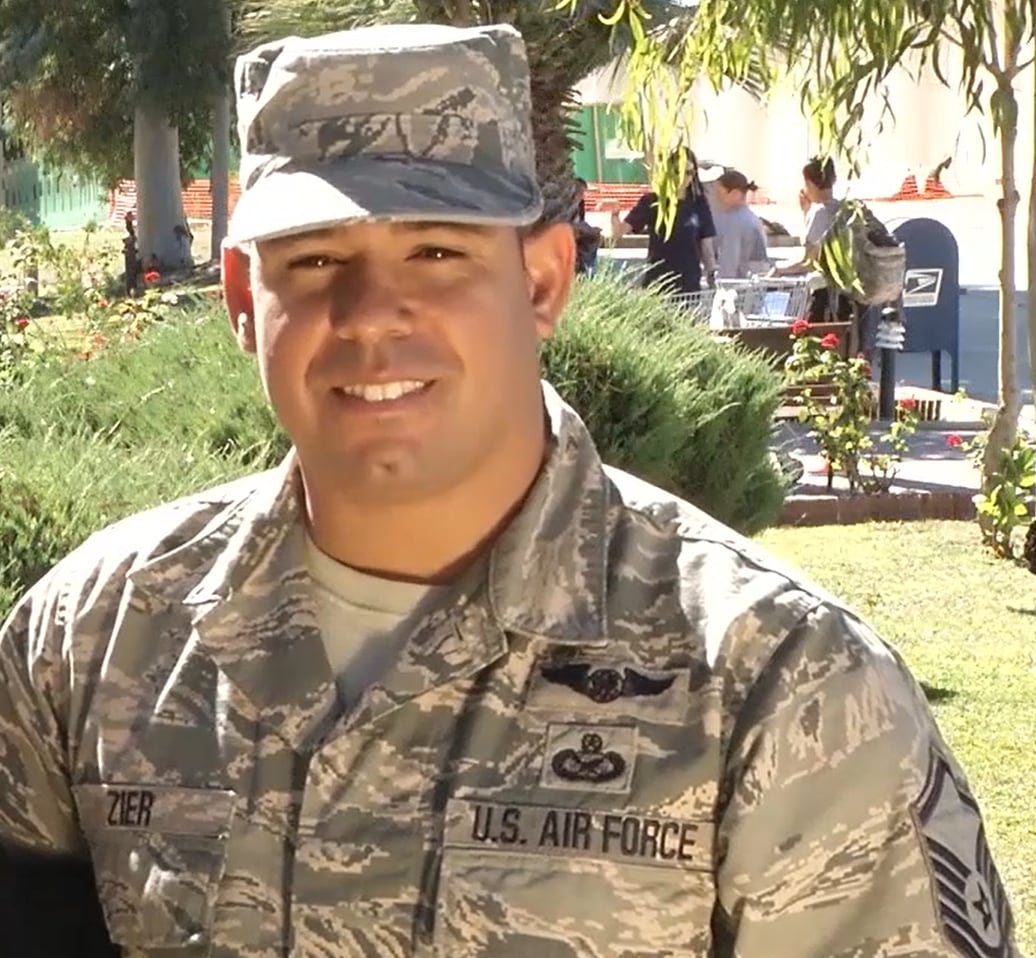
After the Air Force
Bailey was able to use his erroneous place on the Air Force’s payroll as a springboard for multiple other schemes.
Online Air Force personnel records still showed him on active duty status, so Bailey continued to log on to get annual W-2 forms and monthly pay statements that appeared to show his accurate income and employment status. He occasionally received care at military health facilities in violation of Air Force rules, according to indictment papers.
“He falsely portrayed himself publicly as an active duty Air Force member and relied on Air Force documents to open bank accounts and obtain loans, credit cards and other items of value that he was not lawfully entitled to receive,” federal lawyers wrote.
The fraud allegations span Social Security disability benefits, a Department of Veterans Affairs home loan, grant funding for farmers through the Department of Agriculture, student loan forgiveness through the Department of Education, credit and loans from JPMorgan Chase & Co., Barclays Bank and SunTrust Bank, among others, and part-time staff pay at Alabama’s Samford University.
The federal government suspected Bailey laundered his Air Force income through his mother, Janice Bailey, who helped him manage a rental property in Alabama.
“While Brandon Bailey owned the property, the rent checks were made payable to Janice,” an FBI search warrant request said. “She would endorse the checks and Brandon Bailey would deposit them into his USAA bank account.”
Brandon sent more than $26,000 to a USAA account in his mother’s name, which was set up using his own email address. In January 2014, Janice Bailey transferred $25,000 from her account to a new USAA mutual fund account, according to court documents.
Brandon also paid his parents 11 checks totaling over $17,000 from April 2016 to March 2019, the FBI agent noted.
Bailey has admitted to one of four counts of bankruptcy-related fraud, in which he failed to list nearly $70,000 in income as part of his estate when he filed for bankruptcy in February 2019. The lawsuit also alleges he concealed hundreds of thousands of dollars in insurance money he received after a house fire, and the assessed and sale values of several parcels of land.
His estate should have included about $34,000 he earned while working for Samford University, a small, private Christian school in the Birmingham suburbs.
At Samford, which claims Bailey as a 2005 alum, he met with military veterans enrolled in the nursing program to help them apply for education and disability benefits from the VA. The school’s program where Bailey worked helps fast-track veterans into careers as registered nurses.
RELATED

“I am essentially a translator and an advocate. I want to ensure that the veteran and the school are speaking the same language,” Bailey said in the summer 2016 issue of Samford’s magazine. “The goal is for veterans to receive the absolute maximum amount of equivalent credit and to ensure that the program provides every possible advantage to the student.”
He also traveled as a representative of the school at conferences and recruiting events, and used his former position to access military bases in the South and recruit for Samford, court documents said.
Though Bailey billed himself as a retired lieutenant colonel, his Air Force headshot on Samford’s website shows gold oak leaves pinned to his shoulders — denoting major — rather than the silver leaves of the next-highest rank.
The university honored Bailey with an annual award for distinguished alumni in nursing in 2017, and named him as one of two Alumni of the Year in 2020.
“Bailey has continued to serve his country through his involvement with the Disabled American Veterans Association and Disabled American Veterans Choctaw County, Alabama, Chapter,” the university said in 2020. “Bailey is currently a contributing member of the Ida Moffett School of Nursing Advisory Board.”
A Samford spokesperson did not provide comment by press time Monday.
RELATED

Taking a closer look
The Pentagon caught its mistake — the agency that handles military payroll was never told that Bailey was removed — in March 2017. The flow of checks stopped.
In total, the Air Force paid Bailey $818,918.36 in the seven years between his court-martial conviction, which barred him from receiving pay or benefits, and the day the Defense Department struck him from its ledger.
A federal investigation built over the next three years. In April 2020, FBI agent Lawrence Spurlin sought a search warrant to dig up the contents of Bailey’s Apple email address from the company’s headquarters in Silicon Valley.
“Bailey has claimed to be disabled since March 14, 2012,” Spurlin wrote in the search warrant request, which was unsealed March 16. “He appears to be actively engaged in farming activity.”
The Justice Department filed its indictment of Bailey eight months later in December 2020.
Spurlin noted in 2020 that he couldn’t find official documentation that Brandon and Todd Bailey are legally married, such as a marriage certificate or a joint tax filing, though court paperwork refers to Todd as Brandon’s husband. The two live together in Maine and have moved around the country together, public court documents and Facebook posts show.
RELATED
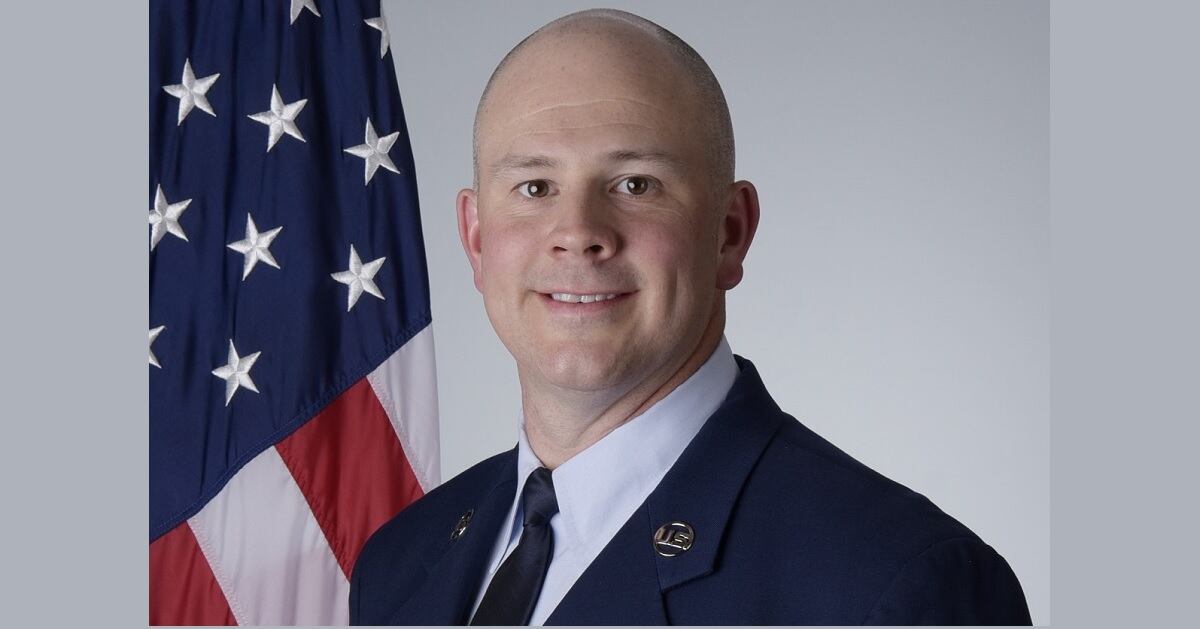
Todd wrote to federal lawyers in September 2021 to protest the potential seizure of his home, three bank accounts and securities as part of the sentencing. “I was not aware of any illegal behavior or activities that Brandon may or may not have been involved in,” he said.
On Dec. 15, Todd’s parents called the police department in Holden, Maine, to warn that Brandon was threatening to kill himself in front of Todd at home, according to a copy of an FBI report on the situation that was included in court documents.
An officer visited the house and detained Brandon, who was sitting in a truck with the engine running. Two other cops joined shortly after.
“Officers believed that Brandon and Todd were having a relationship dispute, which had led to a verbal altercation,” the FBI report said. “Brandon did not express any suicidal ideations in Officer Beal’s presence, nor were there any visible indications of a physical altercation.”
An unnamed minor was at the house as well, the report added.
The two men both claimed the other was experiencing mental health issues. Todd told law enforcement they were arguing over Brandon’s threats of an affair, not that Brandon had suggested committing suicide.
RELATED

Law enforcement found three handguns in the pair’s bedroom, a shotgun in the basement and 9mm ammunition. Bailey’s federal probation banned him from having firearms, which police said both men seemed to acknowledge. Todd claimed the guns were his and told cops he had moved as many as 39 others to a friend’s house.
Police seized the firearms, and Brandon ended up in an Alabama jail for violating the terms of his pretrial release.
“There are no conditions that will reasonably assure the safety of the community,” a Jan. 26 court order said.
DOJ has asked the court to further address the incident at the upcoming hearing.
“Bailey’s alleged misconduct while awaiting sentencing was brazen, indicative of a lack of acceptance of responsibility and worthy of punishment,” prosecutors said.
Rachel Cohen is the editor of Air Force Times. She joined the publication as its senior reporter in March 2021. Her work has appeared in the Washington Post, the Frederick News-Post (Md.), Air and Space Forces Magazine, Inside Defense, Inside Health Policy and elsewhere.
